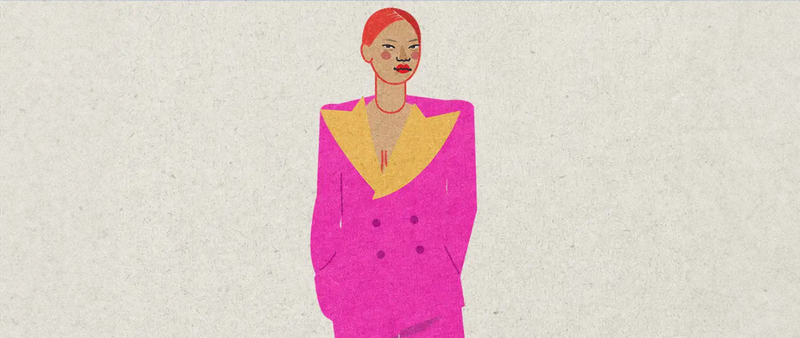In Blogwig’s article Do you speak bad English? we brought up the eternal struggle between evolution and conservatism in language. We talked about how language is changing, if it is a good or a bad thing and how linguistic trends are surviving or dying out lately. However, we have figured out that we talked extensively about English’ past, we pull out daily content on present English, but we might have missed the coverage of the future of English. So we asked ourselves (therefore the scientific literature): what will English sound like in the next centuries? Will the lingua franca of the World as we know it die, at some point? Will we be alive to see it?
Undoubtedly, predicting the future is far more difficult than excavating the past, otherwise weather forecasts would be more reliable than modern history classes. As a consequence, predicting the exact changes in a language over the course of, let’s say, 1000 years is highly speculative—and risky—as language evolution is influenced by a mind-boggling myriad of variables, like cultural trends, the role of technology in society, and societal changes in general.

People change, and so does language.
Nevertheless, we shall try putting the pieces together, keeping in mind that language, like people, changes constantly. For instance, vocabulary. We know for sure that words and phrases will emerge to accommodate new technological and scientific discoveries, or cultural shifts. If we look at the past, for instance, we have an example with the word ‘click’, an English onomatopoeia which spread worldwide with computers. Many languages appropriated it and applied to it their grammar rules, as in the Italian language where we added the infinitive suffix -are and applied to the verbs the rules of the first declination. Plus, we took away the ‘k’ and added an extra ‘c’, because Ks are not exactly an italian thing. Now we use cliccare as it has always been part of our language, also because we have never figured out our own word for it. Unlike the French, but that would be another article. On the contrary, other vocabulary hasn’t made it through the trial of time: Shakespearean English is not what we speak today, both because words get polished by the erosion of time—we tend to get rid of difficult sounds—and because some things related to that vocabulary don’t exist anymore. This variable adds up to the never stopping evolution of vocabulary, which is not even the only thing that varies sensibly from one century to the other.
Grammar and syntax also change and, whether you like it or not, simplification has been occurring since the beginning of time. Don’t get me wrong, language got complicated over the last ten thousand years since, as society got more complex, it also carried with itself complex words to describe it. It is like sculpting: the language is a massive piece of marble, big enough to contain the image you want to carve—aka the meanings you want to convey— and the sculptor is the speaking community. To convey meaning efficiently, a speaking community naturally scrapes away all the useless bits of language and polishes it, adapts it, shapes it according to the community’s needs.

Some languages change more than others
For example, a speaking community that is living in fast-paced changing times will be more prone to evolve its language much faster—absorbing new vocabulary, deleting obsolete words, or simplifying grammar structures—than a speaking community that is undergoing a period of conservative ruling or isolationism.
Talking of isolationism—actually, talking about its contrary—languages evolve according to the dialects and how they behave: sometimes, some dialects win over others, sometimes they win over the standard language itself. See Italian, again. In 1300-something, Dante Alighieri—the father of the Italian language—wrote something called De Vulgari Eloquentia, in which the poet stated the value of speaking the vulgar language (the Florentine dialect, the mother of contemporary standard italian, kinda) over latin, with was the standard language back in the days. Not much after that book, the Humanism and the Renaissance helped out spreading the word and dragged the Florentine dialect throughout the centuries, transforming it into standard Italian, officially recognised as such in 1861.
Yes, the Italian language took an infinite amount of time to become the standard language, but it is because the Italian peninsula is the home of the Vatican—one of the most conservative institutions known to-date—and Latin was literally born there. Other, more dynamic Countries, chose their dialect for institutional purposes way before the Italians. France, for instance, decided the French language to be mandatory for institutional purposes in 1500-something, and dumped Latin much earlier.
Nevertheless, whether slowly or quickly, Latin has ceased to be Europe’s lingua franca for some time now, and we shall wonder whether it will happen to English as well.
The evolution of pronunciation will be quite fascinating: considering that Globalisation and Internet is connecting hundreds of speaking communities through written and oral English, it is highly likely that colloquial simplification of pronunciation such as dontcha or gonna will “soon” be part of standard, written English, despite the conservative resistance. English is in fact the most spoken language on earth. However, it has been proven that 80% of interactions in English take place between non-native speakers, and most of them are East Asians. Therefore, we can foresee that, for instance, the emphasis of the “t” in words that start with a “th,” like “thing.” or the pronunciation “mebbe'' instead of “maybe” could become the new standard English pronunciations, considering also the growth in wealth and power of East Asian countries.

How can we keep up then?
Let’s always keep in mind, when watching these contingencies, that language belongs to people, not to institution, and therefore it is impossible to crystallise one standard language forever, otherwise it would soon become irrelevant to those who speak it.
Apparently, what scares people the most about language changes is the homologation, the loss of complexity and identity through the oversimplification of language. However, the adoption of simplified forms and the democratisation of the standard language is not necessarily a loss in complexity: it is a shifting.
Probably we have found simpler ways of conveying complex meanings today, but this does not prevent the invention of new grammar structures or vocabularies to be adopted for new, even more complex concepts.
On a second note, simplification of communication should not mean imposing a language to the detriment of others: Postcolonialism taught us that preserving language diversity is necessary to communities to assert their identity and preserve their cultures and traditions.
The balance between preservation of the past—and therefore Identity—versus the necessity of evolution and change is one of the greatest debates of humanity since we started thinking. And this very debate has become somehow the balancer between the fast-paced erosion of language and the preservation of diversity.
Therefore, although we do not know when gonna is gonna figure in the Oxford Dictionary as standard English, we are pretty sure it will, at some point, happen.
Will gonna enter and stay in the Dictionary forever? This, we surely answer no. Not because gonna is not ‘pretty’ enough to be standard, but because ‘forever’, in Linguistics, does not exist.
Whatever the future of our standard languages might be, the one thing we know for sure is that Ludwig will always be there, front line, to help you keep up with it.






